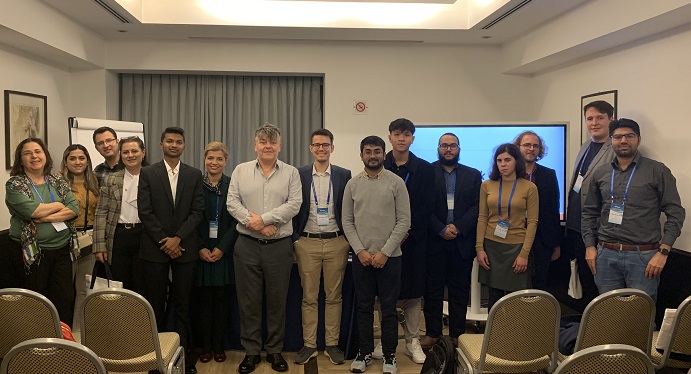There are some good signals that this special period covered with uncertainty and less welcome restrictions will find an end. During the past 2 years we have learned that there are alternative ways to organize a scientific conference: with personal appearance and direct discussion, fully separated and only virtually connected by Internet, and a mixture of both. After 2 years of pure virtual conferences, this year we made the first step towards a traditional and most effective scientific meeting by taking the chance to offer a hybrid conference, managed by Zhonghui Exhibition Group, where the participants could decide between remote access and onsite participation. This year, the conference got more than 110 participants, wherein about 76 attended onsite. Three days filled with new findings, interesting discussions, and unforgettable encounters made the 15th ICMV to another successful event.
This year, we got 130 submissions. After several rounds of review procedure, the program committee accepted 66 papers to be published in the ICMV SPIE Proceedings. Acceptance rate 51.6%. For the structure of that volume we used the following classification into 8 topics: 1 – Target Detection and Tracking, 2 – Image Segmentation, 3 – Image Recognition and Modeling, 4 – Intelligent Image Detection and Application, 5 – Digital Image Analysis and Methods, 6 – Computer Vision and Computer Aided Imaging, 7 – Image Classification and Encryption, 8 – Image and Signal Analysis.. The proceedings will be online soon later.


We started again with 3 keynote lectures and 1 invited talk, all given by recognized international experts in machine vision. Dr. Zhang from the State University of New York reported online about Learning with Knowledge Distillation. Dr. Ferraro from the Institute of Applied Sciences & Intelligent Systems in Naples informed the audience about the latest research of his famous group in the field of Tomographic Flow Cytometry by Digital Holography. “Learning strategies for the recognition and classification of micro-objects through holographic footprints”. In his talk he could show in very impressive way the potential of 3D visualization and quantification of cells by the fusion of both techniques. One high point of the keynote session was presented then by Prof. Ahlers, founder of ProxyVision. In his mix of a historic review and a future outlook, he discussed the paradigm shift in image processing and machine vision. Several application domains sch as automotive, and aerospace were addressed. The final invited talk was given by Dr. Elandaloussi, founder of Syperion, and was about several aspects of automation by visual sensing in open cast mining. The author reported about the advantages of point cloud transformation of rough distance data for the complex information processing with respect to the derivation of relevant landscape data for the mining procedure.
The conference was continued with 14 contributed papers presented in 2 special sessions: - Machine Vision for Autonomous Vehicles (chaired by Prof. Wolfgang Osten), and - Machine Vision based Stress, Cognition, and Emotion Sensing in Driver/Occupant Monitoring Systems (chaired by Prof. Peter Corcoran) . Afterwards 8 technical sessions completed the program that ended with an award ceremony for the best papers given in all sessions. 8 awardees could be recognized for their outstanding presentations.








%20Zhang.png)


